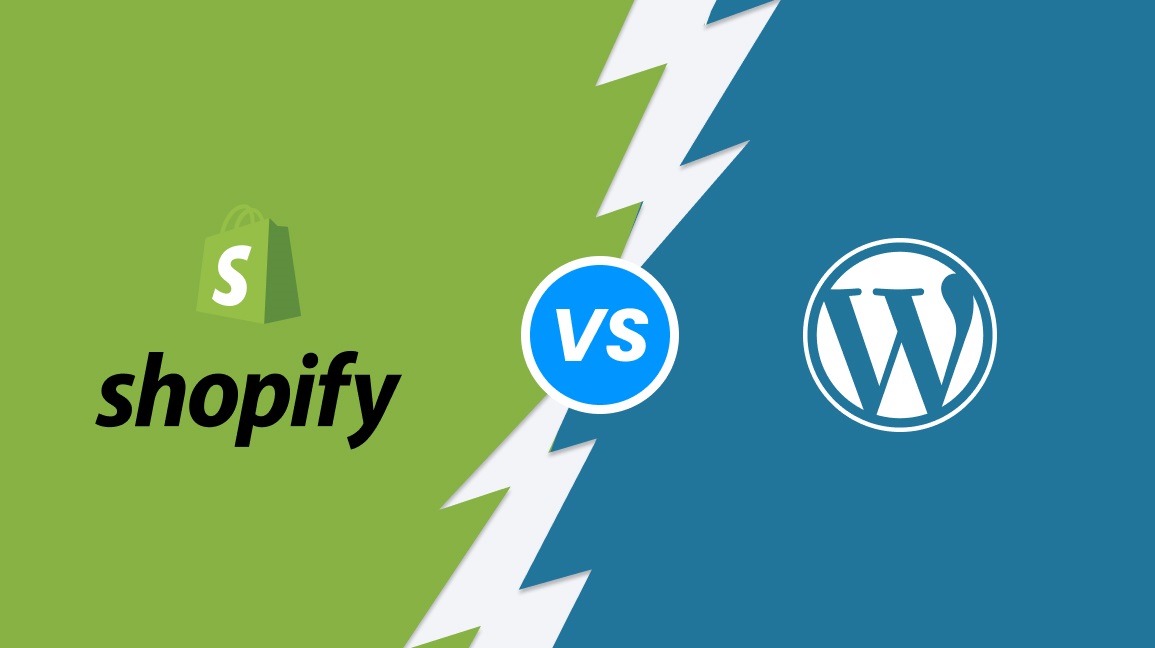
Developing an online presence for your business requires SEO (Search Engine Optimization). While both WordPress and Shopify are popular tools for creating websites, they take somewhat distinct approaches to SEO. To select the ideal platform for your business, you must be aware of the benefits and drawbacks of each one in terms of SEO features. Let’s take a very close look at Shopify vs. WordPress SEO so you can make an informed decision.
The Reasons SEO Is Important for Your Internet Company
It’s important to comprehend the importance of SEO before contrasting WordPress and Shopify. Optimizing your website to appear higher in search engine results is known as SEO. Your website will draw more visitors if it ranks higher, which will boost sales, exposure, and brand recognition.
Your internet business can succeed or fail depending on the platform you choose to assist your SEO efforts. Achieving organic search ranks will be simpler if your platform has strong SEO tools. Let’s now examine how Shopify and WordPress compare to one another.
WordPress SEO: Flexibility and Customization
The SEO versatility of WordPress is well recognized. Because the platform is open-source, users can alter the code and incorporate other SEO plugins to enhance the functionality of their websites. WordPress excels at SEO in the following ways:
1. Extensive Plugin Support
You can simply improve your content, meta descriptions, titles, and even photos with WordPress’s many SEO plugins, such as Yoast SEO and Rank Math. These plugins make on-page SEO more approachable for users of all skill levels by guiding you through the process of optimizing each page for particular keywords.
2. Customizable Permalinks
You can simply improve your content, meta descriptions, titles, and even photos with WordPress’s many SEO plugins, such as Yoast SEO and Rank Math. These plugins make on-page SEO more approachable for users of all skill levels by guiding you through the process of optimizing each page for particular keywords.
3. Mobile Optimization
Having a mobile-optimized website is crucial since Google prioritizes mobile-first indexing. Because WordPress themes usually adapt to various screen sizes automatically, your website will be ideal for both desktop and mobile consumers.
4. Content Management Capabilities
In SEO, content is essential. As a powerful content management system (CMS), WordPress facilitates the creation and administration of blog entries, landing pages, and other types of material. You may easily include SEO tactics in your content creation to keep your website current and relevant.
5. Control Over Technical SEO
Users of WordPress have control over several technical SEO components, including robots.txt files, XML sitemaps, and schema markup. These options are available to advanced users who want to further optimize their web pages for search engine crawlers.
WordPress SEO: Drawbacks
Although WordPress provides a lot of versatility, novices may find it daunting. To maximize WordPress’ SEO potential, you might need to engage a specialist or manually adjust SEO settings.
Shopify SEO: Simplicity and Built-In Features
Shopify, on the other hand, is a platform designed specifically for eCommerce companies and has user-friendly integrated SEO capabilities. Shopify takes care of a large portion of the technical SEO for you, freeing up business owners to concentrate on managing their businesses rather than intricate SEO setups.
1. Built-in SEO Features
Essential components like robots.txt files and XML sitemaps are automatically generated by Shopify. Additionally, it handles canonical tags and URL redirection, making sure your website stays clear of duplicate content problems that could hurt SEO.
2. Clean and Responsive Themes
Shopify provides mobile-responsive themes, just like WordPress, so your website is optimized for mobile visitors. Because Shopify themes are constructed with clean code, your site will load faster, which is important for SEO rankings.
3. Structured Data
For your products, Shopify automatically creates structured data (also called schema markup), which improves the way search engines like Google comprehend your content. eCommerce websites trying to rank product pages in search results will find this especially helpful.
4. Fast Loading Times
Fast loading times are a hallmark of Shopify stores and are crucial to SEO performance. Shopify’s servers are tuned for fast loading times because it is a fully hosted platform, guaranteeing that your sites adhere to Google’s Core Web Vitals guidelines.
5. Secure and Scalable
By default, Shopify offers SSL certificates, which are crucial for user confidence and SEO. Google considers a secure website (HTTPS) when ranking websites, and Shopify makes this simple by integrating SSL into every store.
Shopify SEO: Drawbacks
Shopify has restrictions when it comes to customization, despite its superior ease. WordPress has more control over your URLs than you have, and paid apps are sometimes needed to add sophisticated SEO features. Additionally, Shopify’s platform might not provide as much flexibility for creating content as WordPress.
WordPress vs. Shopify: Which is Better for SEO?
The question still stands after examining both platforms: Which is more suitable for your company? Your particular needs will determine the answer to a considerable extent.
Choose WordPress if…
- You value control over SEO and customization.
- You are operating a website with a lot of content, such as an informational blog.
- You can adjust every aspect of your SEO settings and desire to use sophisticated SEO plugins.
- You possess the resources or technical know-how to oversee unique SEO setups.
Choose Shopify if…
- You require an all-in-one solution because your primary business is eCommerce.
- You like your SEO to be straightforward and uninvolved.
- Although security and speed are important considerations, you don’t require a lot of SEO tweaking.
- Instead of investing time in SEO management, you should concentrate on sales and products.
Final Thoughts
Both Shopify and WordPress are strong systems with different advantages for SEO. With built-in eCommerce-specific features, Shopify streamlines the process, while WordPress offers you unmatched power and freedom. Your decision should be based on your technical proficiency, business model, and desired level of SEO control.
Read More: Advanced WordPress SEO Techniques to Take Your Site to the Next Level
